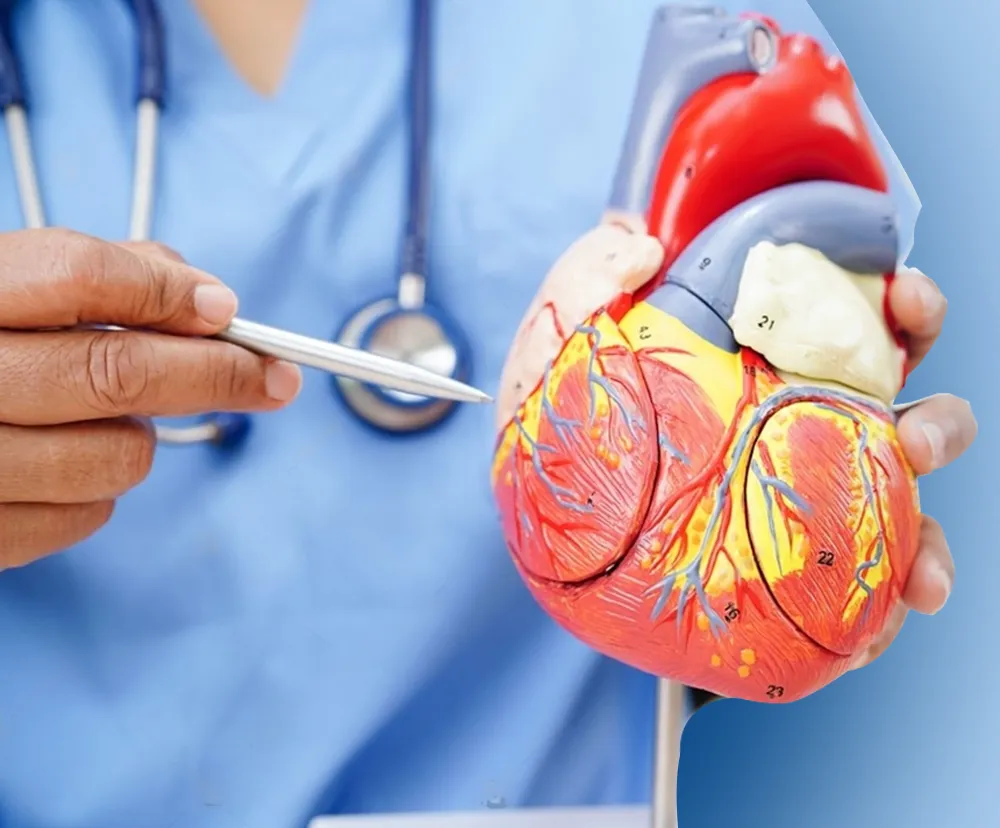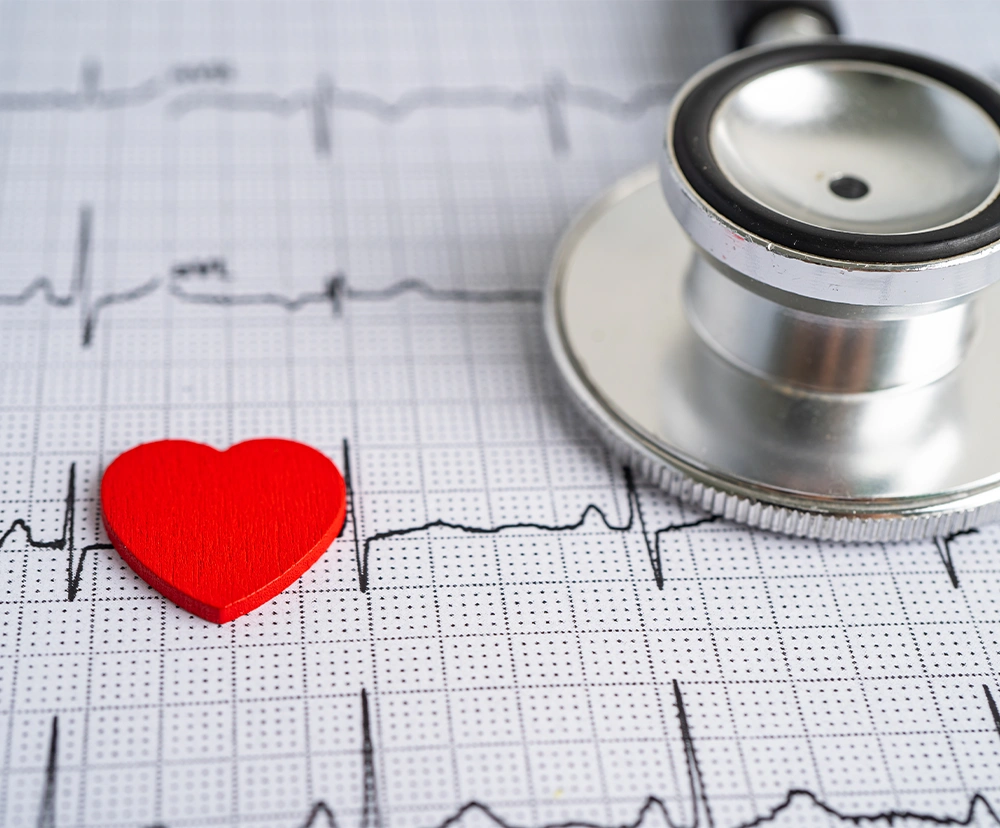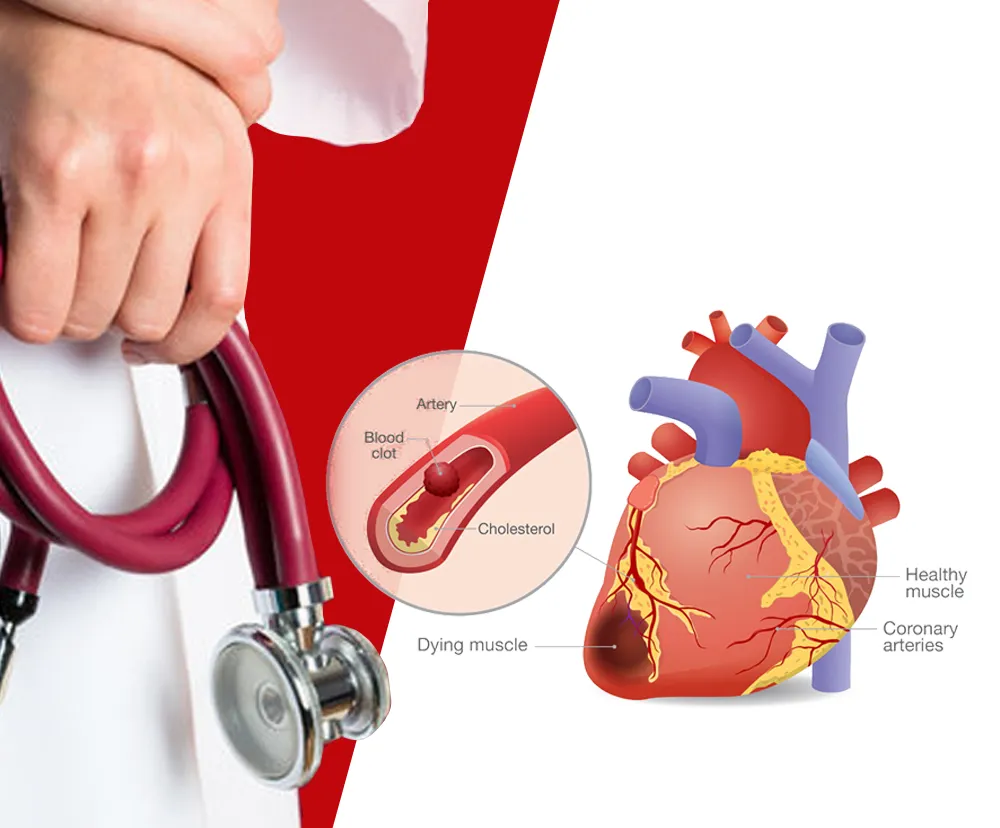What Are The Ideal Diagnosis For Confirmation Of Heart Attack?
What Are The Ideal Diagnosis For Confirmation Of Heart Attack?
- Does ECG detect heart attack?
- The danger of underlying heart conditions remaining undetected
- What is the difference between type 1 and type 2 heart attacks?
- Troponin tests, type 2 heart attacks and undiagnosed conditions
- How genetic testing can help detect underlying conditions to prevent heart attacks?
Introduction
Failure to detect certain types of heart ailments and conditions are responsible for high fatalities. A recent study by the American Heart Association showed that one third of people with Type 2 heart attacks were not diagnosed or receiving treatment. As a result of this, patients ended up with delayed confirmation of heart attack with a clear increase in death rates. Here are top reasons why you need to know more about the right diagnosis of heart attack, and conditions that are commonly confused with heart attacks.
Does ECG detect heart attack?
Yes, ECG/EKG is the most common initial test that you may undergo if you report symptoms of a heart attack. Based on the ECG results, you may then have to undergo other tests for confirmation of heart attack. Here’s a little fact to clear a possible confusion. ECG and EKG are the same, both are different abbreviations and spellings of the same test electrocardiogram. In German language, this test is spelt with a ‘k’, as electrocardiogram, and thereby has a different abbreviation of EKG.
How long does it take for an ECG test?
Typically, it takes between 5 to 10 minutes for an ECG test. Interestingly, an ECG can actually detect a heart attack that a person may have had in the past, if there is dead heart muscle. This could actually show if you have had a heart attack many years ago, if there is dead heart muscle.
What to expect during an ECG test?
As outlined above, this is a simple test, to evaluate the heart and give confirmation of heart attack. This involves placing small electrodes at specific spots on your chest, arms, and legs. These electrodes are then connected to the ECG machine. The electrodes convey electrical activity of the heart, which is measured and the results are interpreted from the prints. In case you are apprehensive of electric currents, be assured that during the test, electricity is not sent to the body in any way. The leads that connect the electrodes to the ECG machine only convey the electrical signals to the machine and do not sent electricity to the body.
The ECG records shows how fast your heart is beating and the rhythm of your heart beats. For instance, if the heart beats are steady or irregular. Any changes recorded during the test may indicate heart conditions that require further testing or treatment.
What do the results of an ECG indicate?
The results of an ECG help doctors with data for confirmation of heart attack. For instance, the following is determined:
- Identifying the cause of chest pain reported by you.
- Assessing problems such as severe tiredness, difficulty breathing, feelings of dizziness and fainting.
- Identifying irregular heartbeats.
- Assess overall heart health for treatment for a heart attack.
- To record a baseline of the heart’s function, for comparison with future ECGs.
The danger of underlying heart conditions remaining undetected
There is a clear danger when underlying heart conditions are not detected on time. A recent study shows that more than two thirds of people who have had a heart attack due to reasons other than blood clots, have some undetected heart condition. While tests can help with confirmation of heart attack, after the actual attack, it is always best to know about underlying conditions before the attack. This will help in preventing fatalities and also help to reduce the risk of attacks.
The American Heart Association reported findings about people who had Type 2 heart attacks, caused by strains due to infections or high rate of heart beats. This has the effect of reducing blood pressure levels or oxygen levels in the blood. During the study, advanced heart imaging tests were conducted and it was revealed that patients had narrowed arteries or weakened heart muscles. These were in most cases not diagnosed, and a very small number of patients had received treatment.
This makes it necessary to undergo other tests to determine the underlying conditions in time. Genetic testing holds out great promise as it helps detect the genetic component of certain underlying conditions. In other words, you can determine if you are genetically predisposed to certain conditions. Armed with this information, you can seek timely treatment and make suitable changes in lifestyle to reduce the risk of heart attacks.
What is the difference between type 1 and type 2 heart attacks?
Heart attacks that are commonly known are known as Type 1 myocardial infarction. This refers to the condition wherein blood supply to the heart is affected. This is typically due to a blood clot, that results in the death of a particular area of heart muscle.
Type 2 myocardial infarction refers to the condition when there is damage to the heart muscle due to strain from certain conditions. Here, blood supply is affected, reducing oxygen levels, and this puts a strain on the heart, ultimately resulting in damage to the muscle.
Troponin tests, type 2 heart attacks and undiagnosed conditions
Tests that help with confirmation of heart attack include the Troponin tests. These are highly sensitive blood tests that check for troponin levels in the blood. This protein is released into your blood when your heart muscle undergoes some kind of damage. This lets the specialist quickly diagnose if you have had a heart attack.
Interestingly, about 50% of patients with high troponin levels are recorded as having had Type 2 heart attacks. However, less than 33% of these patients had not been diagnosed or had not received treatment. Due to the failure to detect and treat the conditions, fatalities increased.
How genetic testing can help detect underlying conditions to prevent heart attacks?
Simple genetic testing can uncover if you are genetically predisposed to certain underlying conditions. The reasons for heart attacks are broadly classified into the following:
- Genetics
- Lifestyle
- Existing medical conditions
- Environment
- Age, gender
- Medications
- Depression, anxiety
Out of these reasons, it is possible for a person to be aware of most of the causes, through a simple session with a cardiologist. For example, you can learn of how environment, medicines, depression, anxiety, lifestyle, and existing medical conditions affect your chances of a heart attack. However, the genetic component of risk, can only be determined by tests. Simple blood or saliva samples can help uncover your risk of a heart attack. Advanced facilities are now available in Tamilnadu, that can help clear your apprehensions, or help you make suitable modifications in lifestyle to reduce your risk.
Medically Reviewed by
Dr.Rajasekar Cardiologist
Dr. Rajasekar is a cardiologist in Chennai, with extensive experience in the field. He completed his MBBS from Madurai Kamaraj University, followed by an MD in General Medicine and a DM in Cardiology from The Tamil Nadu Dr. M.G.R. Medical University (TNMGRMU).
Related Blogs :

Why You Need To Start Understanding Cardiovascular Disease
Slide HeadingLorem ipsum dolor sit amet, consectetur adipiscing elit. Ut elit tellus, luctus nec ullamcorper mattis, pulvinar dapibus leo.Click Here Previous Next What is the main information...


Life Saving Tips on how to stop Heart Attack
Introduction How to stop a heart attack in 30 seconds? Why time is of utmost importance? How to stop heart attack if you see signs of it...

Doctor of Pharmacy (Pharm.D) from the University of Delhi Experience : Dr. Srinivasan is an experienced pharmacist with a Doctor of Pharmacy degree from the University of Delhi and over 12 years in the field. She has worked extensively in clinical and community pharmacy settings, focusing on patient care, medication management, and drug safety. Dr. Srinivasan also contributes to health and wellness publications and serves as a consultant for pharmaceutical companies and healthcare organizations. Her expertise spans clinical practice, pharmaceutical writing, and regulatory affairs.



